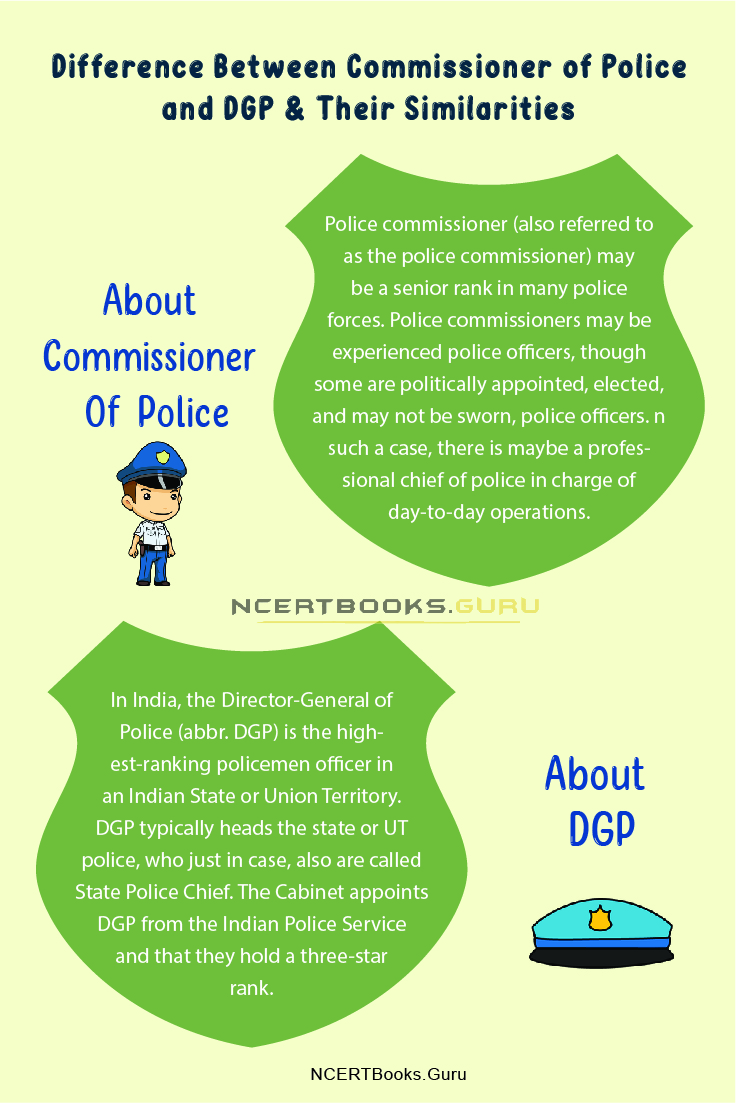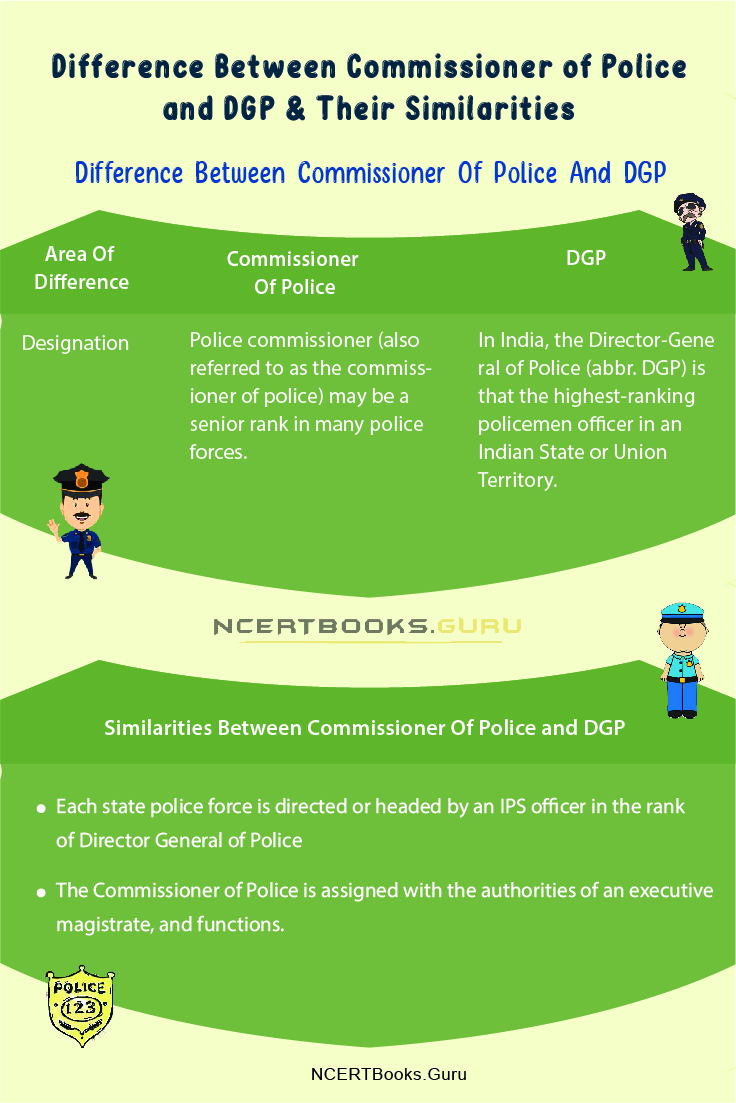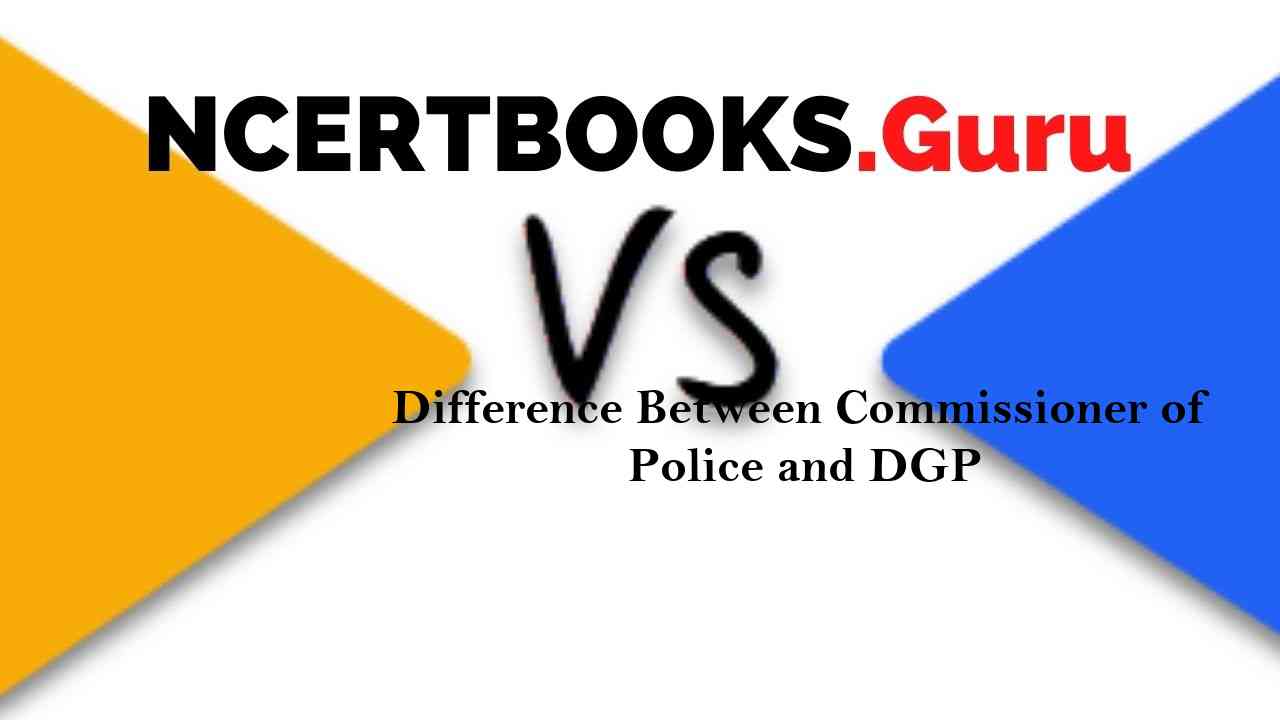Introduction
The Commissioner of Police department of each state is entrusted with the powers of an executive magistrate. Commissioner of Police is assisted by one too many Joint Commissioners of Police. In India, the Director-General of Police (DGP) maybe a three-star rank and therefore the highest-ranking policemen officer in Indian States and Union Territories.
The Commissioner of Police could also be the rank of Additional DGP or IGP but maybe in the rank of DIGP.
You can also find differences between articles on various topics that you need to know. Just tap on the quick link available and get to know the basic differences between them.
What is the Difference Between Commissioner of Police and DGP?
About Commissioner Of Police
Police commissioner (also referred to as the police commissioner) may be a senior rank in many police forces. Police commissioners may be experienced police officers, though some are politically appointed, elected, and may not be sworn, police officers.
In such a case, there is maybe a professional chief of police in charge of day-to-day operations. In either event, commissioners are the designated heads of the organizations.
In India, the Commissioner of Police designation is held by different ranks of Indian Police Service (IPS) officers at other places. For example, it’s held by a Director General of Police (DGP) in Ahmedabad, Hyderabad, Delhi.
About DGP
In India, the Director-General of Police (abbr. DGP) is the highest-ranking policemen officer in an Indian State or Union Territory. DGP typically heads the state or UT police, who just in case, also are called State Police Chief. The Cabinet appoints DGP from the Indian Police Service and that they hold a three-star rank.
There can also be additional officers within the state who hold the rank of DGP. Typical appointments for such officers include Director of Vigilance and Anti-Corruption Bureau, Director General of Prisons, Director General of fireside forces and civil defence, Criminal Investigation Department (CID), Police Housing Society etc.

Difference Between Commissioner Of Police And DGP
| Area Of Difference | Commissioner Of Police | DGP |
| Designation | Police commissioner (also referred to as the commissioner of police) may be a senior rank in many police forces. | In India, the Director-General of Police (abbr. DGP) is that the highest-ranking policemen officer in an Indian State or Union Territory. |
| Discipline Of Work | Police commissioners may be experienced police officers, though some are politically appointed, or elected. | DGP typically heads the state or UT police, which in case, are also called State Police Chief. |

Similarities Between Commissioner Of Police and DGP
- Each state police force is directed or headed by an IPS officer in the rank of Director General of Police.
- The Commissioner of Police could also be of the rank of Additional DGP, or IGP, and can be within the rank of DIGP.
- The Commissioner of Police is assigned with the authorities of an executive magistrate, and functions.
Frequently Asked Questions on Difference Between Commissioner of Police and DGP
Question:
Who is a more powerful DM or commissioner?
Answer:
A DIG is at par with the commissioner, a rank superior to DM. But under the new system introduced by the Indian government, DIGs are given charge of districts replacing senior superintendents of police (SSPs).
Question:
What is the difference between the police commissioner and DGP?
Answer:
The Commissioner of Police is empowered with the powers of an executive magistrate. Commissioner of Police is assisted by one too many Joint Commissioners of Police. In India, the Director-General of Police (DGP) maybe a three-star rank and; therefore, the highest-ranking policemen officer in Indian States and Union Territories.
